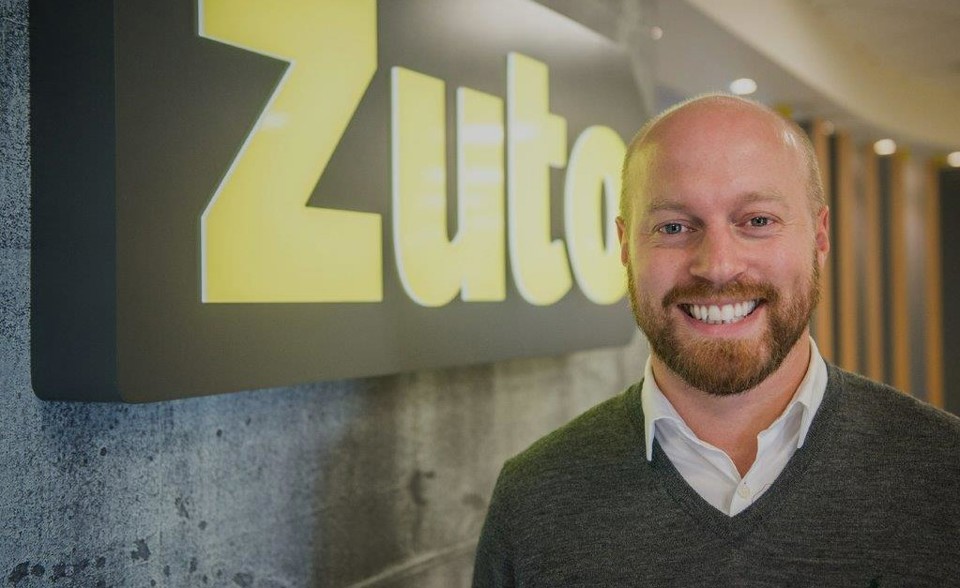When I read earlier this year about the push for the automotive sector to achieve carbon net zero, I imagined some worried faces.
Environmental, Social and Corporate Governance (ESG) is becoming a hot topic, and the pressure is on all of us in the automotive industry to think about this, and make sure it’s more than just a box ticking exercise.
Working towards ESG goals might seem quite daunting, especially when the automotive industry is not typically seen as an environmentally friendly one.
The immediate thing that springs to mind is the push on electric cars - both by the government and manufacturers. This is one way to help address the challenge, but the environment is just one third of ESG.
Businesses also need to address their social and governance obligations, but it can feel like a big challenge to balance this and really understand what you can do to make an impact, all while ensuring your business is succeeding and making a profit.
A greater purpose
Growth, profit and market share are all really important, but they’re only half the story. We all have a responsibility to help change our industry for the better.
The car finance industry has historically suffered from an image problem, sometimes seen as being plagued by bad practice and unfair lending rates. At Zuto, we want to shift this, and bring fairness and transparency back to this market and help change it for the better.
While transforming the way people buy cars is exciting, the ESG pillars signify a purpose that goes beyond just cars and finance.
What about the impact our businesses are having on our employees, our customers, our local communities and the planet? For me, the journey I’ve been on with my 12-year-old son Jimmy who has special needs has changed my outlook. It has opened my eyes to the opportunity we have to use our business as a force for good, embracing inclusivity and making a difference in a much more meaningful way.
Looking through a B Corp lens
Ensuring this greater purpose was quantifiable and built into our business operations is one of the reasons we decided to go for B Corp Certification.
To be certified as a B Corp, businesses must demonstrate a commitment to strategically align their practices with ESG considerations in mind. All our decision making needs to be based on ESG credentials, and we need to make sure we maintain those standards.
You really have to put your money where your mouth is… there is no danger of cheating the B Corp certification by making false claims – B Corp are extremely thorough.
Using the B Corp framework as a guide has allowed us to put a firm lens on the topics that we believe will help change our industry for the better.
For us, that’s supporting local communities, looking after our people, becoming an employer of choice, nurturing an inclusive culture and doing the right thing for our planet.
Achieving B Corp status is one of our proudest moments at Zuto.
Having a B Corp focus on your business helps you to see how you can contribute towards making your industry better and more sustainable.
To ensure our ESG initiatives are given the same priority as other aspects of the business (with goals, metrics and accountability), we made sure to bring our board of directors on the journey.
We’re fortunate that ours are very supportive, but we know that some boards may challenge the impact that this level of commitment can have on decision making and the requirement to balance profit with other factors.
All stakeholders count
It’s importance to consider and be accountable to all stakeholders, not just shareholders. ESG impacts your business relationships with partners and suppliers, and it is a topic that increasingly matters to customers and employees.
It will start to influence what people buy, who they buy from and where they choose to work. A PWC study into consumer and employee ESG expectations revealed that 83% of consumers think companies should be actively shaping ESG best practices.
We believe that people want to feel like a valued member of a team that’s on an inspiring mission.
But they do need to understand why the business’s ESG goals are important to them personally, as well as to their role, the business, and the wider industry.
At Zuto, we try to make sure that everyone feels involved and that ESG forms part of every role, by cascading initiatives from the leadership team through task forces and impact groups, and empowering our workforce to self-organise and drive changes for the better.
There are many reasons to review your ESG credentials aside from legislation and industry targets.
I firmly believe that businesses as a collective can make more difference than the government.
In the automotive sector, we have an opportunity to make an impact that reaches far beyond simply helping put customers into cars. Yes, it requires a re-evaluation of all aspects of business, beyond product, growth, and profitability – but it is possible to balance financial returns against doing the right thing by society and the environment.
Author: James Wilkinson, chief executive of Zuto



















Login to comment
Comments
No comments have been made yet.